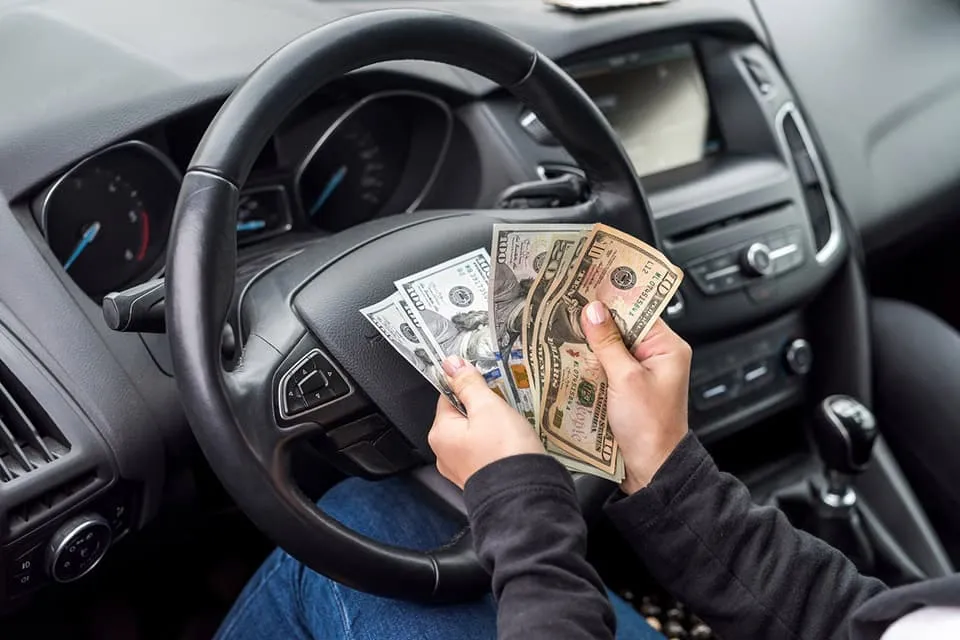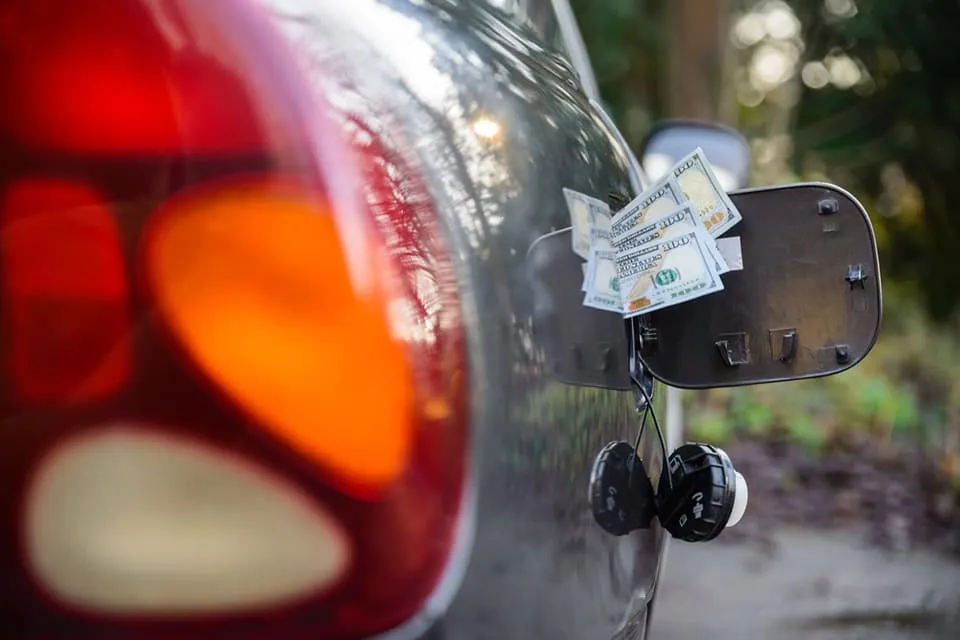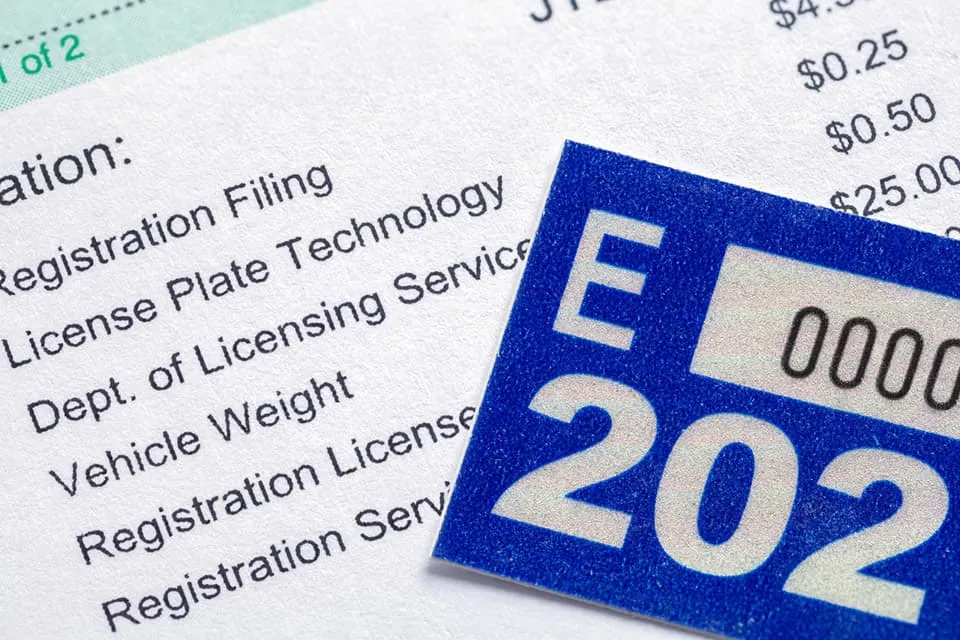- Cost of Car Ownership: Estimating True Cost, Depreciation, and Total Expenses
- What is the Total Cost of Ownership?
- Other Upfront Car Expenses
- Insurance Types and Costs
- How Do You Calculate Car Depreciation?
- How Much Does a Vehicle Depreciate in a Year?
- Let GoodCar Help You Go Into Car Ownership with a Proper Budget in Mind
Cost of Car Ownership:
Estimating True Cost, Depreciation, and Total Expenses

While most people budget for the initial price of a vehicle, few consider the long-term cost of vehicle ownership. While the value of your car will reduce over time, the costs associated with its operation and upkeep will continue to accrue; this makes the true cost of car ownership far more than that initial MSRP or sticker price. To get a better idea of whether a car fits in your budget and estimate what types of expenditures you'll need to make over its lifespan, you'll need to determine the total cost of car ownership.
What is the Total Cost of Ownership?
The total cost of ownership for a vehicle or any other asset you invest in is the initial purchase price combined with all costs associated with related operations. For a vehicle, this means the price you pay to a seller to get the vehicle plus the costs to operate it. The factors that influence those vehicle costs include:
Purchase price: This is the starting point for your budget. Be realistic about what you can afford, and don't forget to factor in taxes, fees, etc.

Depreciation: Once you drive your car off the lot, it begins to lose value due to a process called depreciation. On average, new cars depreciate around 60% of their original value in the first five years after they are purchased.
Fuel: Whether your car takes gas, diesel, or uses some form of alternative fuel, the material you use to power your car will add to its costs.
Insurance: In most areas, you are legally required to have liability insurance. Most insurance plans are paid through monthly premiums. The cost of these premiums is determined by the type of vehicle you drive, the quality of your local roads, how far you drive each year, and various other factors. There are several different kinds of car insurance, including:
- Liability Insurance
- Comprehensive Insurance
- Collision Insurance
- Uninsured Motorist Insurance
- Underinsured Motorist Insurance
- Gap Insurance
- Medical Payments Coverage
- Personal Injury Protection Insurance
Interest on Loans: If you don't have enough money to pay for a car outright, you can make monthly payments through a loan. Loans are generally done through banks or a lending company and offer a way to make monthly payments towards the price of your vehicle. To ensure a loan fits your budget, you'll want to use a loan calculator, which can help you estimate your monthly cost before buying a car.

Licensing and Registration: Passing a driving test and getting your license, along with the costs to have your vehicle registered to drive legally, all carry their own fees. A driver's license will have a different cost depending on what state you drive in and can range anywhere from $10 (the cost in Missouri) to $72 (the cost in Connecticut.) Car registration fees also vary, ranging from $14 in a state like Mississippi to $274 in places like North Dakota.
Maintenance: While regular car maintenance may seem costly, it can also help your vehicle maintain a higher resale value over time. There are many maintenance-related tasks you'll want to complete to keep your car in good working order, including:
- Tire Rotation
- Maintaining Tire Pressure
- Changing Lights (Parking lights, Turn Signals, Brakelights, Headlights, etc.)
- Keeping Fluids Topped Off
- Getting Oil Changes
- Changing Filters (Air Filter, Oil Filter, etc.)
- Maintaining Safe Levels of Tread Depth on Tires
Most of these tasks should be completed on a set schedule, with most taking place monthly, every three months, twice a year, yearly, and every other year. Other tasks will depend on your mileage, like oil changes. On average, you should get an oil change every 3,000 to 5,000 miles, though a service technician will give you an exact estimate when you go in for a change.
Other Upfront Car Expenses

These include registering the car, which can cost anywhere from $50 to $200, depending on the state. There are also taxes to consider, which vary based on the state and type of vehicle. Lastly, insurance is a significant expense - full coverage insurance averages around $2,200 annually in the United States.
We can break that down into about $184 in average monthly car expenses – at least expenses related to insurance. The average cost of owning a car per month varies depending on the state, insurance premiums, and fuel prices, but it shouldn't be that hard to calculate on an individual basis. Knowing the initial cost of car ownership will help you decide if you can afford a car and how much you can afford to spend on a car.
Insurance Types and Costs
There are various insurance types and costs that come with owning a car. The most common type of insurance is liability insurance, which covers damages to other people or property if you are at fault in an accident. Costs for liability insurance vary by state but typically range from $500 to $1,000 per year.
Other types of insurance include collision and comprehensive coverage, which cover damages to your own car in the event of an accident or other incident (such as theft). These types of coverage are typically optional but may be required by your lender if you have a loan on your car. Costs for collision and comprehensive coverage can vary widely, depending on the value of your car and the deductible you choose.
How Do You Calculate Car Depreciation?
Car depreciation can be affected by many different factors that change over time; that being said, there is a general formula you can follow. Take your car's current fair market value and subtract the purchase price (while deducting any related fees or sales tax). You can also use several online tools to calculate vehicle depreciation automatically. These are provided by sites like Kelley Blue Book or the National Automobile Dealers Association.
How Much Does a Vehicle Depreciate in a Year?
On average, a new car will depreciate around 60% of its value within the first five years. Your specific depreciation rate will depend on various factors like age, vehicle condition, make, model, mileage, accident history, ownership history, and even vehicle color. The best way to get this information aggregated is through a vehicle history report. You can get many details relating to any available car, including:
- Vehicle Overview
- Title History
- Sales History
- Location History
- Pricing
- Residual Values
- Junk/Salvage Records
- Insurer "Total Loss" Records
- Auto Specs
- Title Brands (Problem Checks)
- Mileage Information
- Awards and Accolades
- NHTSA Crash Testing and Recall Data
- And Much More!
Let GoodCar Help You Go Into Car Ownership with a Proper Budget in Mind
When you're budgeting for a car, it's important to factor in all of the potential costs of ownership. In addition to the purchase price, you'll need to account for things like gas, insurance, maintenance, and repairs. If you're not sure whether you can afford a car, it's a good idea to sit down and calculate all of the potential expenses. By doing this, you'll get a better sense of whether or not owning a car is within your budget.
- Cost of Car Ownership: Estimating True Cost, Depreciation, and Total Expenses
- What is the Total Cost of Ownership?
- Other Upfront Car Expenses
- Insurance Types and Costs
- How Do You Calculate Car Depreciation?
- How Much Does a Vehicle Depreciate in a Year?
- Let GoodCar Help You Go Into Car Ownership with a Proper Budget in Mind
FREE Vehicle Search
- Accidents
- Problem Checks
- Title Records
- Recalls
- Values
- Specs
-
InfoPay, Inc. (dba GoodCar) is an Approved NMVTIS Data Provider
-
-































